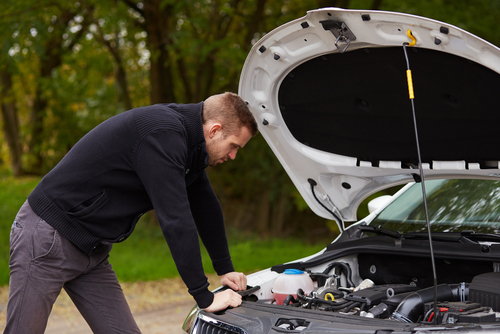 Prior to 1970, a person who bought a defective vehicle in California had to fight it out alone with the dealership and or the powerful auto manufacturer. It was a David versus Goliath battle, but unlike the biblical story, the consumer more often came out the loser.
Prior to 1970, a person who bought a defective vehicle in California had to fight it out alone with the dealership and or the powerful auto manufacturer. It was a David versus Goliath battle, but unlike the biblical story, the consumer more often came out the loser.
In 1970, however, that changed when the Song-Beverly Consumer Warranty Act, better known as the California Lemon Law, was established.
The law (CA Civil Code Section 1790-1795.8) covers not only vehicles, but all consumer goods sold at retail in the state that are under implied or express written warranties.
The law establishes that all retail goods sold to consumers in California are covered under implied warranty of merchant ability as well as implied warranty of fitness. This means that the goods are suitable for a particular purpose and they perform as promised by the retailer or manufacturer.
While the above act pertained to all goods, the Magnum-Moss Warranty Federal  Trade Commission Improvement Act of 1975, was the first regulation that was specific to motor vehicles. This Act required that a vehicle’s warranty be fully explained to consumers and that if the vehicle turned out to be a lemon that the vehicle owner would be compensated.
Trade Commission Improvement Act of 1975, was the first regulation that was specific to motor vehicles. This Act required that a vehicle’s warranty be fully explained to consumers and that if the vehicle turned out to be a lemon that the vehicle owner would be compensated.
Proving a Lemon Law Claim
Despite our strong California Lemon Laws, it can still be very difficult to prove your lemon law claim and obtain compensation or a replacement vehicle without the help of a qualified Lemon Law Attorney. That’s why these laws actually provide that an attorney’s legal fees are paid by the auto manufacturer. They pay the attorneys fees and it doesn’t come out of your settlement. If the lawyer is unable to obtain a settlement for you, you owe them nothing. The laws essentially level the playing field so David can stand up to Goliath without fear of getting squashed.
Does Your Vehicle Qualify?
There are certain requirements that must be met in order for your vehicle to qualify as a lemon under California law. Here is a basic outline, but it’s not conclusive so it’s best to check with an attorney to see if your vehicle qualifies.
Here are some of the basics that determine if your vehicle is a lemon:
- 4 or more attempts to repair for the same problem
- 2 repair attempts for major defect that threatens safety
- 30 days in the shop within one year
- All of the above applies to new or used vehicles as long as the problems happen under the original manufacturer’s warranty period.
Once your vehicle is deemed a lemon there are two options.
- Replace the vehicle with a new one
- Reimburse your money
 So the way this works is, if you are driving a 2015 Honda Civic that is determined to be a lemon you will get it replaced with a 2017 Honda Civic.
So the way this works is, if you are driving a 2015 Honda Civic that is determined to be a lemon you will get it replaced with a 2017 Honda Civic.
If you choose reimbursement, you will get back your down payment and all payments made on the vehicle including license, tax and registration fees. If your car car first gives you problems at 17,000 miles, you will agree to pay an amount for your use of the car prior to its failure up to that 17,000 miles.
Lemon Law Claims Help — Call 800-235-6801
 Motorists who are grappling with ongoing problems with their vehicle could be eligible for compensation under California Lemon Laws.
Motorists who are grappling with ongoing problems with their vehicle could be eligible for compensation under California Lemon Laws.
Johnson Attorneys Group has helped thousands of clients resolve their lemon law cases and we can help you. Call us for a FREE CONSULTATION at 800-235-6801. Remember that our attorneys fees do not come out of your settlement because the manufacturer is required to pay them directly to us under California Lemon Laws.
- Ford Recall Over 1 Million Vehicles for Rearview Camera Defect - May 29, 2025
- Ford Recalls 2025 F-150 Pickup Trucks Over Steering Defect - May 19, 2025
- Audi Recall for 89,000 Q5 SUVs for Potential Engine Fire Risk - May 12, 2025
